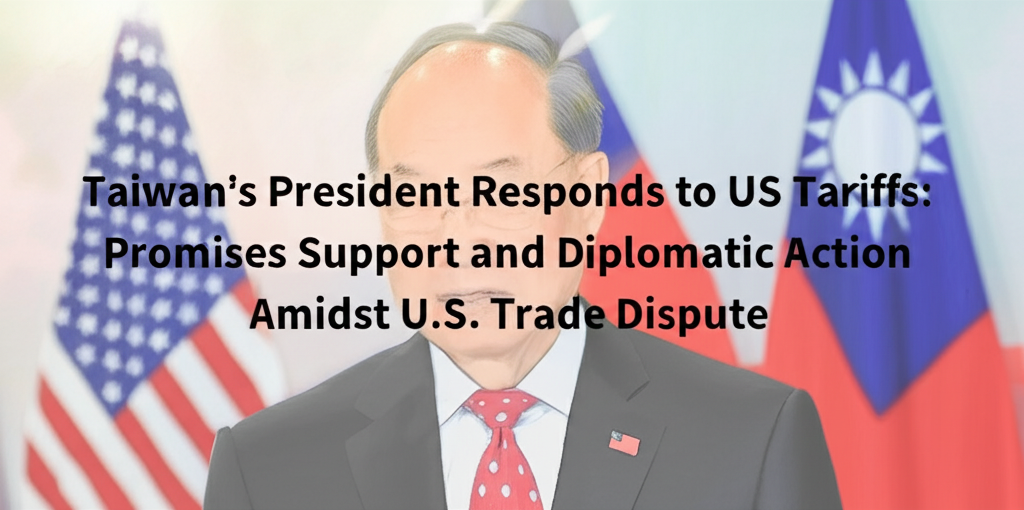Taiwan's President Responds to US Tariffs: Promises Support and Diplomatic Action
President Lai Ching-te Vows to Aid Taiwanese Businesses Amidst U.S. Trade Dispute

Taipei, April 3 – President Lai Ching-te (賴清德) has vowed to provide extensive support to Taiwanese businesses potentially affected by U.S. President Donald Trump's newly announced 32 percent tariffs on Taiwanese imports. This commitment comes as Taiwan braces for the impact of the upcoming economic measures.
Describing the planned tariffs as a significant challenge to global trade and economics, Lai stated via social media that his government is actively engaging with Taiwanese industries. He pledged to offer them "maximum support," although specific details of the aid package were not immediately released.
Simultaneously, the Taiwanese government is intensifying communication with the United States, aiming to address what it views as the "many unreasonable aspects of the tariff" and safeguard Taiwan's national interests.
President Lai has directed the executive branch, headed by Premier Cho Jung-tai (卓榮泰), to quickly inform the public about the anticipated effects of the tariffs on Taiwan's economy and to present the government's comprehensive response strategy.
The U.S. tariffs, announced by Donald Trump during a Washington news conference, are scheduled to take effect on April 9. These "reciprocal tariffs" will apply to numerous countries, with Taiwan specifically facing a 32 percent import tax on its goods.
The White House has indicated that some product categories, including copper, pharmaceuticals, semiconductors, lumber, energy, and “certain critical minerals,” will be exempt from these new economic measures.
Lai’s remarks followed a statement from the Cabinet that strongly criticized the planned tariffs, characterizing the decision as “deeply unreasonable” and “highly regrettable.”
Lai further noted that the proposed tariffs on Taiwanese goods fail to acknowledge the "highly complementary" trade relationship between Taiwan and the U.S.
He highlighted Taiwan's consistent trade surpluses with the U.S. in recent years, primarily due to high American demand for Taiwanese information and communication technology products. President Lai expressed his belief that it is "unreasonable" for these surpluses to be cited as justification for the imposition of high tariffs on Taiwan.
The president also expressed worries about the potential adverse consequences of Trump’s tariffs on the global economy.
Other Versions
El Presidente de Taiwán responde a los aranceles de EE.UU.: Promete apoyo y acción diplomática
La présidente de Taïwan réagit aux tarifs douaniers américains : Promesse de soutien et d'action diplomatique
Presiden Taiwan Menanggapi Tarif AS: Menjanjikan Dukungan dan Tindakan Diplomatik
Il presidente di Taiwan risponde alle tariffe statunitensi: Promette sostegno e azione diplomatica
台湾総統、米国の関税措置に反発:支援と外交行動を約束
대만 대통령이 미국의 관세에 대응합니다: 지원 및 외교적 조치 약속
Tumugon ang Pangulo ng Taiwan sa Taripa ng US: Nangangako ng Suporta at Diplomatikong Aksyon
Президент Тайваня отреагировал на тарифы США: Обещает поддержку и дипломатические меры
ประธานาธิบดีไต้หวันตอบโต้มาตรการภาษีของสหรัฐฯ: สัญญาว่าจะให้การสนับสนุนและดำเนินการทาง�
Tổng thống Đài Loan phản hồi về thuế quan của Mỹ: Hứa hỗ trợ và hành động ngoại giao
